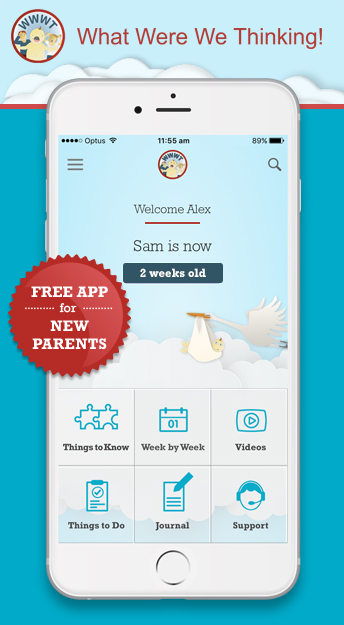Men and postnatal worry
By Heather Rowe
Becoming a parent for the first time involves losses and gains as well as lots of things to worry about. What are the common sources or worry for new fathers? How can fathers combat it?
Common sources of worry or anxiety in new fathers are:
- The additional financial responsibilities
- Creating their new identity as a ‘father’
- Caring well for their baby
- The changing dynamics of their family and intimate partner relationships
Managing on one income whilst one partner is away from the paid workforce, choosing how much like your own father you want to be and what you want to do differently, learning about infant care, and having to share your partner’s affection with the new baby are concerns that most new fathers experience. Sometimes other stressful life events coincide with becoming a parent. Being very irritable is a sign that something is worrying you and it is important to recognise and manage your concerns actively.
We no longer live in a society where fathers are automatically the ‘providers’ for the family and mothers the ‘nurturers’. However, rigid ideas about ‘who does what’ are still common. Traditional understandings of masculinity include that men don’t talk about their feelings. So some men respond to worrying by staying away from home in paid work for longer hours, exercising more or drinking more alcohol. These are all ways of avoiding thinking or talking about worries.
The first step to tackling your worry is not to avoid what is worrying you. Some fathers opt out of caring for their baby because they are afraid that they might ‘get it wrong’. Remember that you can gently remind your partner that you are learning and that criticism is not helpful. It is OK to ask for guidance.
The next step is to talk to your partner. Find a time when you are not tired and irritable. Take turns in expressing how you feel. Listen carefully to each other. Plan some solutions to your worries: you can make a list of your priorities for spending or create a household budget, discuss your hopes and fears about being a father, agree that babies thrive on care from both parents, acknowledge that fathers need opportunities to practise being a competent caregiver, and decide on new ways to support each other that you might not have needed before the birth. It is helpful to be listened to with patience and kindness. Family members and close friends can also be good listeners.
If you are experiencing excessive worry that is interfering with your life, you could consider consulting a health professional who specialises in the emotional needs of new parents. Your family doctor is the best person to ask about services in your area.
Undue worry and anxiety can have a profound effect on a family’s wellbeing and a baby’s development. You can combat excessive worry by not avoiding what is worrying you and by taking active steps to find solutions to your concerns.
Heather is Senior Research Fellow with expertise in women's health research and health promotion practice. She translates expert knowledge into mental health promotion programs for women and their families. She has a special research interest in using technologies to reach diverse groups of women and their families during the childbearing year and at other phases of life.
Posted in: A new reality In this together Parenting Experts









